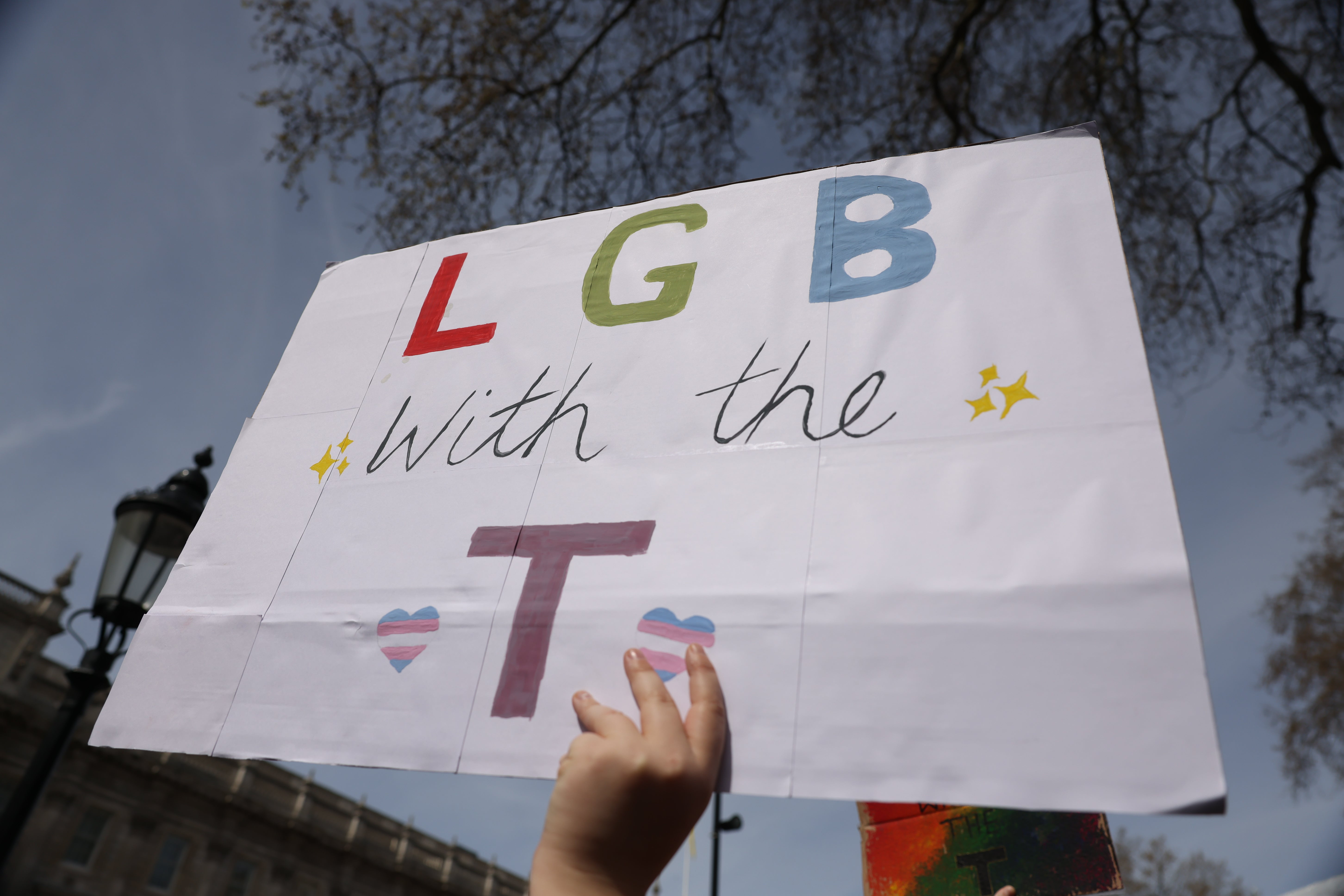The Independent's journalism is supported by our readers. When you purchase through links on our site, we may earn commission.
Ignoring trans rights will only impede our fight with HIV
We won’t stand by and watch marginalisation and stigma get in the way of the health and wellbeing of trans people


Last week, the government decided not to protect trans people from the harrowing experience of conversion therapy. This shortsighted and enormously damaging decision risks trans people’s health, as well as their human rights.
That’s why National AIDS Trust joined over 100 other organisations in withdrawing its support for the government’s Safe To Be Me LGBT conference planned for this summer. Despite this overwhelming outcry and the wealth of supportive evidence, the government has chosen to cancel the conference instead of rethinking its stance on excluding trans people from the ban.
As the UK’s HIV rights charity, we know that hostile attitudes towards trans people make it harder for them to get the healthcare they need – this is despite incredible advances in treatment for HIV. Thanks to effective treatment, it is estimated that 89 per cent of all those living with HIV have such low levels of the virus that it is undetectable, and they cannot pass HIV on to anyone else. We won’t be able to reach 100 per cent unless we end the marginalisation of groups like trans people, who are currently being left behind.
Worldwide, trans people continue to be disproportionately affected by HIV and poor sexual health as a result of healthcare systems that fail to meet their needs. In the UK, the highly effective HIV prevention drug PrEP is still only prescribed in sexual health clinics, which can be unwelcoming environments for trans people. Many clinics do not collect data on gender identity properly, and staff can ask unnecessary and intrusive questions. This can all add to anxiety they are already experiencing, making many reluctant to engage with sexual health services at all.
Whilst PrEP is now prescribed to tens of thousands of people, only a tiny fraction of those accessing the drug identify as trans. That’s why it is so important for the government to listen to calls from HIV organisations, including National AIDS Trust, to make PrEP more widely available.
There are trans-affirming sexual health and wellbeing services, such as the amazing CliniQ, but these are few and far between and are chronically underfunded, yet in high demand. Founder Michelle Ross told us recently that they had a nine-month waiting list for their counselling services.
Sometimes trans people are denied healthcare altogether; a survey by Trans Actual found that 14 per cent had been refused care at least once by their GP for being trans. Healthcare does not exist in a vacuum, so when discrimination towards trans people is in our politics and in our headlines, it will seep into our healthcare settings too.
This leads to worse health outcomes for trans people, damaging their quality of life. A survey run by Public Health England of a small number of trans people living with HIV found that they were more likely to report mental health issues, lower life-satisfaction, severe problems doing their usual activities like work or visiting family, and face greater stigma in healthcare settings compared to cis people.
To keep up to speed with all the latest opinions and comment, sign up to our free weekly Voices Dispatches newsletter by clicking here
The government’s efforts must go further than healthcare. Leaving the door open for trans people to be forced into harmful conversion therapy, while shutting it for everyone else, normalises the marginalisation and exclusion of trans people. Marginalisation is no stranger to those who have experienced HIV during the 80s and 90s. And that marginalisation feeds into stigma that continues to surround HIV and acts as one of the key drivers of the epidemic.
We won’t stand by and watch marginalisation and stigma get in the way of the health and wellbeing of trans people. Trans people have always been at the heart of the fight against HIV, and I am proud that, as an HIV sector, we stood alongside LGBT+ organisations to oppose the government’s refusal to ban the cruel practice of conversion therapy for everyone.
The government has promised to end HIV transmissions by 2030, but until they offer trans people the legal protection they are offering other LGBT people, they will fail to deliver on their promise. A conversion therapy ban for all is vital for LGBT+ justice, and for health justice too.
Deborah Gold is the chief executive of National AIDS Trust
Join our commenting forum
Join thought-provoking conversations, follow other Independent readers and see their replies
Comments